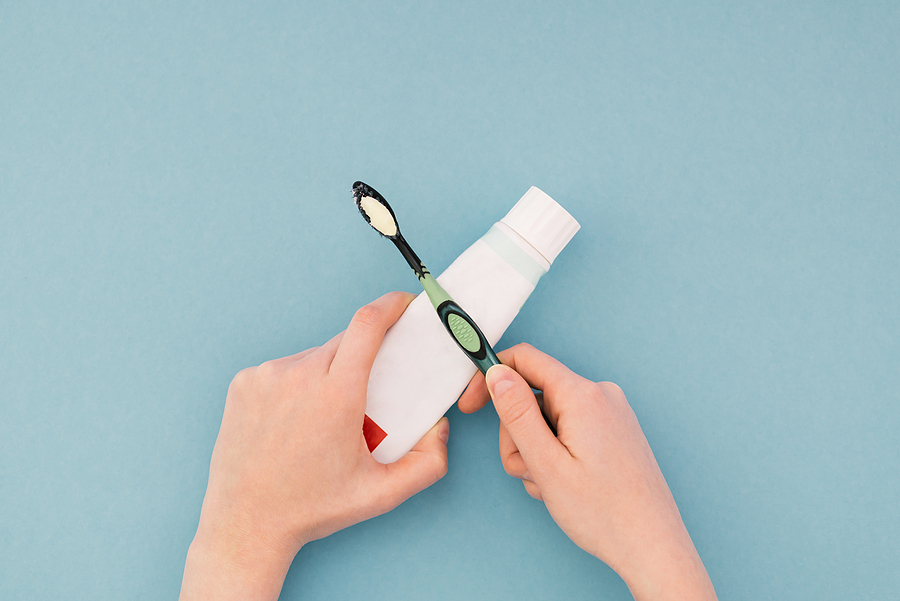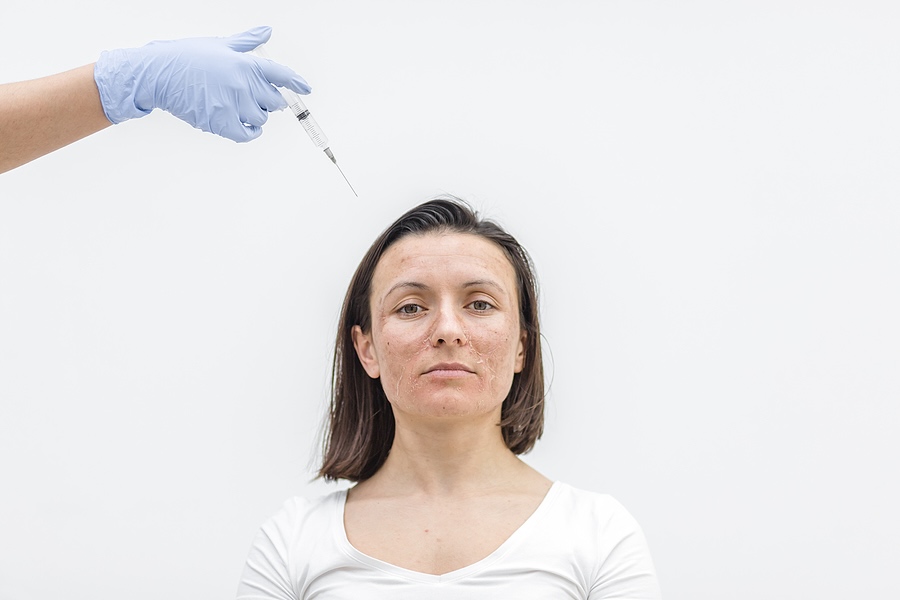Have you been hearing a lot about thyroid imbalances lately? More and more often these days, when women experience problems like increased fatigue, loss of concentration and weight gain, the first thing that comes to mind is “it must be my thyroid.” But what does that really mean?
The thyroid gland regulates your metabolism, which has a huge impact on your weight, your energy levels, and your moods. When stress hormones go out of balance, your thyroid is often affected, too, which in turn triggers PMS, menstrual and perimenopausal symptoms and other health issues. Thyroid-induced symptoms include weight gain, constipation, hair loss, sluggishness, fatigue, depression, and mood swings.
There are two types of thyroid imbalance; your levels can be skewed in either direction, too high or too low. Right now, we’re going to focus on hypothyroidism, or low thyroid levels, which sometimes show up despite your best attempts to establish a healthy lifestyle. This can happen because the hormonal changes that occur with menopause are sometimes accompanied by fluctuations in thyroid functioning. Left untreated, this can lead to thyroid imbalances, hypothyroidism, or the need to rely on medication indefinitely. Lets’ talk more about hypothyroidism and look at some options for natural hypothyroidism treatment.
What is Hypothyroidism?
A healthy thyroid is crucial to helping you metabolize food, manage your weight, keep your internal thermostat functioning efficiently, using and storing energy, reproduction, sleeping and even talking!
When your body underproduces thyroid hormones, the condition is known as hypothyroidism. When this occurs, you feel like you just aren’t functioning like your normal self. You may remember the old days when things were firing properly, and now they just are not. Women report a multitude of symptoms that end up being due to an under-functioning thyroid.
Your brain and your thyroid usually communicate with your body to maintain optimal balance of these hormones. In this healthy state, the brain produces thyrotropin-releasing hormone (TRH) and thyroid-stimulating hormone (TSH). These hormones then prompt your thyroid gland to produce the active thyroid hormones called T4 (thyroxine) and T3 (triiodothyronine) whenever levels are low. Ultimately, the body works to convert T4 into T3, the form our cells recognize best and use most effectively.
To meet your body’s continually changing needs, this active system is designed to adjust itself from moment to moment. This system will always move toward balance as long as things haven’t gotten too far out of sync.
Is it Menopause or is it My Thyroid?
Menopause and thyroid issues often go hand in hand. When patients report symptoms of energy loss, unusual weight gain, lowered sexual desire, changes in their skin and hair and depression, we sometimes discover they are entering menopause or perimenopause. However, it’s not uncommon for them to also have evidence of thyroid imbalance. The symptoms are closely related due to the close connection between the thyroid hormones and the sex hormones axes.
During menopause, less sex hormones are produced because you require less of them during the second half of life. However, estrogen helps TRH to perform its job. This means that as less estrogen is produced, thyroid function also slows down, especially if the decrease in estrogen is sudden or dramatic.
Maybe you have been prone to thyroid imbalance throughout your life without being aware of your predisposition to the disorder. When everything is working exactly as designed, you are able to effectively cope with changes you experience. There are many variables though, that affect our abilities and make us vulnerable to imbalance. Some of these factors include stress, our environment, genetics and nutrition. Reproductive factors also have an impact, which explains why women are more likely than men to suffer from thyroid disorders.
Hormonal imbalances such as thyroid dysfunction commonly result when the endocrine system veers off-center. With suboptimal levels of thyroid hormones, your cells simply cannot produce healthy biological responses and you begin to experience symptoms. For women who have been extremely health conscious throughout their lives, this can be particularly frustrating.
Thyroid imbalance origins sometimes don’t lie within the thyroid, but rather in the roots of the gland itself or in other parts of the endocrine system. The thyroid is constantly engaged with other endocrine glands in a series of complex feedback loops. For example, when your adrenal glands don’t work well, your thyroid is also affected.
Testing for Thyroid
If you report symptoms, your medical provider may order lab tests to evaluate your TSH levels. These tests will indicate higher levels of TSH if your T4 and T3 are low. This shows that your pituitary gland is working very hard to produce enough TSH to try to stimulate production of T4 and T3, as well as to change T4 to T3.
While the “normal range” for laboratories that test TSH may be as high as 4.0mlU/L, we usually prefer seeing TSH blood levels that are closer to 2.0 mlU/L.
Why is this? It has been our experience that there is a discrepancy between what some medical providers feel is normal and what is truly best for women as unique individuals. At our clinic, we use a broader thyroid test to screen women with symptoms of menopause. Approximately 20% of women fall within the “normal” range, but another 35% have subclinical hypothyroidism according to their lab results!
We also look closely at the changes that have taken place over time, as well as trends in your overall health. During menopause it’s vitally important to consider all aspects, because even very small variations can contribute to hormonal imbalance. When these imbalances are discovered, you can start to give your body the support it needs naturally, before more symptoms start to occur.
Conventional Thyroid Test Ranges
Below are the test ranges that conventional medical practitioners feel are normal. Remember, if you have symptoms or your test results are showing an upward trend, we feel it is important to have your thyroid function thoroughly evaluated by an experienced practitioner, regardless of initial test results. Remember also, that the best values lie between the low range and the high range.
- T4: 4.8–13.2 mcg/dL
- Free T4: 0.9–2 ng/dL
- T3: 80–200 ng/dL
- TSH: 0.4–4.0 mIU/L (if you have no hypothyroid or hyperthyroid symptoms), otherwise 0.3–2.0 mIU/L (if you’re being treated)
During perimenopause and menopause, it is even more important to pay special attention to your thyroid health. Your body is going through so many changes at this time that even small modifications can help you find relief from your troubling symptoms.
Hypothyroidism Treatment
The best way to support thyroid function (and overall health) is through good nutrition, which includes supplementation with an adequate daily pharmaceutical grade multivitamin-mineral complex that includes selenium, iodine vitamin A, and zinc.
Make sure you stay current with your preventative health maintenance, like routine screenings and wellness exams. If your family has a history of thyroid disorders, be sure to share this with your medical provider.
At MarcellePick.com, we know that a natural approach can often restore thyroid health and can help to decrease symptoms that may overlap with those caused by menopause. We add prescription medications when needed and we prefer those that are naturally-sourced.
Try These Easy Tips to Support Your Thyroid Health Naturally:
Nourish Yourself
You require a wide variety of nutrients daily for your hormonal health, including thyroid health. Vitamin A, EPA and DHA, and zinc, for instance, work to increase T3 binding in your cells. Iodine is the key ingredient in thyroid hormones T3 and T4. Trying to produce T3 and T4 without iodine is like trying to make a roast without the beef! Selenium is also required for the conversion of T4 to T3, so if you are deficient, increasing your intake can make a huge difference.
Fresh Whole Foods Are the Best Source of Nutrients
That means making your food from scratch (it is not as hard as it sounds) rather than relying on processed and packaged foods. Almost every client we see who has a thyroid disorder is lacking something nutritionally. A good pharmaceutical-grade multivitamin and mineral complex can help to aid in thyroid support and help restore nutritional health.
Reduce the Effects of Stress in Your Daily Life.
Chronic stress has been shown to have very powerful negative effects on your endocrine system. Stress hormones which are released as a part of the stress response affect both the production and efficient utilization of thyroid hormones and sex hormones. While it may be unrealistic for you to remove all stressors from your life, reducing some stressors will prove beneficial. Remember that many times we are not able to change the stress – but we can change how we respond to it. Practice self care daily, review your sleep routine and make changes so that you sleep well, and eat a diet which supports your body rather than challenging it. Say ‘no’ when you can. Affirm living a life of balance.
Try Natural Healing Herbs
There are certain phytotherapeutic herbs that provide support during menopause by readjusting hormonal balances. Balance between estrogen, progesterone and testosterone aids healthy functioning throughout the entire endocrine system, including the thyroid. Other herbs — such as bacopamonnieri, hops, and sage help to support healthy cell metabolism in the thyroid gland and throughout the body where thyroid hormone receptors and thyroid hormone conversion activity also occur.
Final Thoughts on Hypothyroidism
Keep in mind that although we know hormonal changes in menopause can unmask or trigger a thyroid disorder, many women may still be suffering from unrecognized thyroid disease. Pay attention to your body and watch closely for symptoms so you can look for the right connections. If you understand a few simple facts about how your body works, you can better understand how to restore your natural balance and take steps to feel better.
At marcellepick.com we have worked with thousands of women who have experienced a thyroid imbalance. While some may need medication, many women have followed our program and seen amazing results; they’ve seen their energy soar, they’ve lost weight, regained control over their internal thermostats, and most have reported feeling like themselves again!
If you are experiencing any of these symptoms, order our Thyroid Program today! Our supplements are of the highest pharmaceutical-grade quality – women from all over rave about how they feel when taking them. Our Thyroid Support formula has been developed using the latest research on thyroid function and thyroid symptom control. Why not start today?
If you have questions, contact us! Through email at support@marcellepick.com or by phone 1-888-303-8846. Start feeling better today!
For more information on this topic, read our articles on Thyroid Health.







